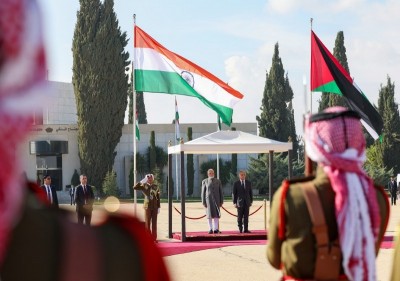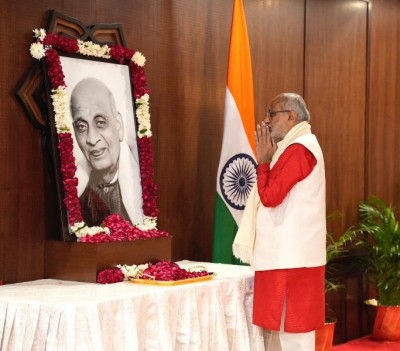 Law Commission
Law Commission
Section 124A dealing with Sedition law should be retained, says Law Commission
New Delhi/UNI: The Law Commission of India (LCI) in its latest report said section 124A of the Indian Penal Code (IPC) dealing with sedition law should be retained with certain safeguards to prevent its misuse and also suggested an enhancement in punishment.
The 22nd LCI, headed by the former Chief Justice of the Karnataka High Court Ritu Raj Awasthi, who had pronounced the verdict in the Hijab case in 2022, had recommended that Section 124A of the IPC, which criminalises sedition, should be retained with certain safeguards to prevent its misuse and also suggested an enhancement in punishment.
“Repealing the legal provision can have serious adverse ramifications for the security and integrity of the country," Justice Awasthi-led LCI, said, and recommended the retention of the 153-year-old, colonial law on sedition in India.
"Section 124A needs to be retained in the IPC, though certain amendments, as suggested, may be introduced in it by incorporating the judicial law of Kedar Nath Singh versus Bihar state, so as to bring about greater clarity regarding the usage of the provision," the LCI in its report said.
Currently, Section 124A provides for life imprisonment or imprisonment up to three years.
The Commission had, in its latest report, however, suggested that the jail term of 3 years be enhanced to 7 years to ensure that the sedition laws are not misused.
A three-judge bench of the Supreme Court headed by the former Chief Justice of India (CJI) Nuthalapati Venkata Ramana had on May 11, 2022, in its verdict put the provision in abeyance instead of deciding on the constitutional validity of sedition laws.
At present, there are a batch of petitions pending for adjudication on the issue of the constitutional validity of sedition law, before the Supreme Court.
The sedition law warrants a jail sentence, for creating "disaffection towards the government", and was brought into the penal code in 1890, 57 years before India got her Independence and almost 30 years after the IPC came into being.
The LCI recommended these suggestions after the Central government told the Supreme Court that it will re-examine and reconsider whether Section 124A needs to be retained.
"The continued existence of the government established by law is an essential condition for the security and stability of the State. In this context, it becomes imperative to retain Section 124A and ensure that all such subversive activities are nipped in their incipiency," said the LCI.
It also said the sedition law is a reasonable restriction on the right to free speech and that the mere fact that a particular legal provision is colonial in its origin does not ipso facto validate the case for its repeal.
The report of the LCI further said that in the absence of Section 124A, any expression that incites violence against the government would invariably be tried under the special laws and counter-terror legislation, which contain much more stringent provisions to deal with the accused.
"Repealing Section 124A of the IPC on the mere basis that certain countries have done so is essentially turning a blind eye to the glaring ground realities existing in India," Justice Awasthi led LCI, also said.
The Commission made it clear that people are at liberty to indulge in healthy and constructive criticism of their government in a democratic set-up but what Section l24A of IPC seeks to penalise is only the pernicious tendency to incite violence or cause public disorder in the guise of exercising the right to freedom of speech and expression.
Support Our Journalism
We cannot do without you.. your contribution supports unbiased journalism
IBNS is not driven by any ism- not wokeism, not racism, not skewed secularism, not hyper right-wing or left liberal ideals, nor by any hardline religious beliefs or hyper nationalism. We want to serve you good old objective news, as they are. We do not judge or preach. We let people decide for themselves. We only try to present factual and well-sourced news.







